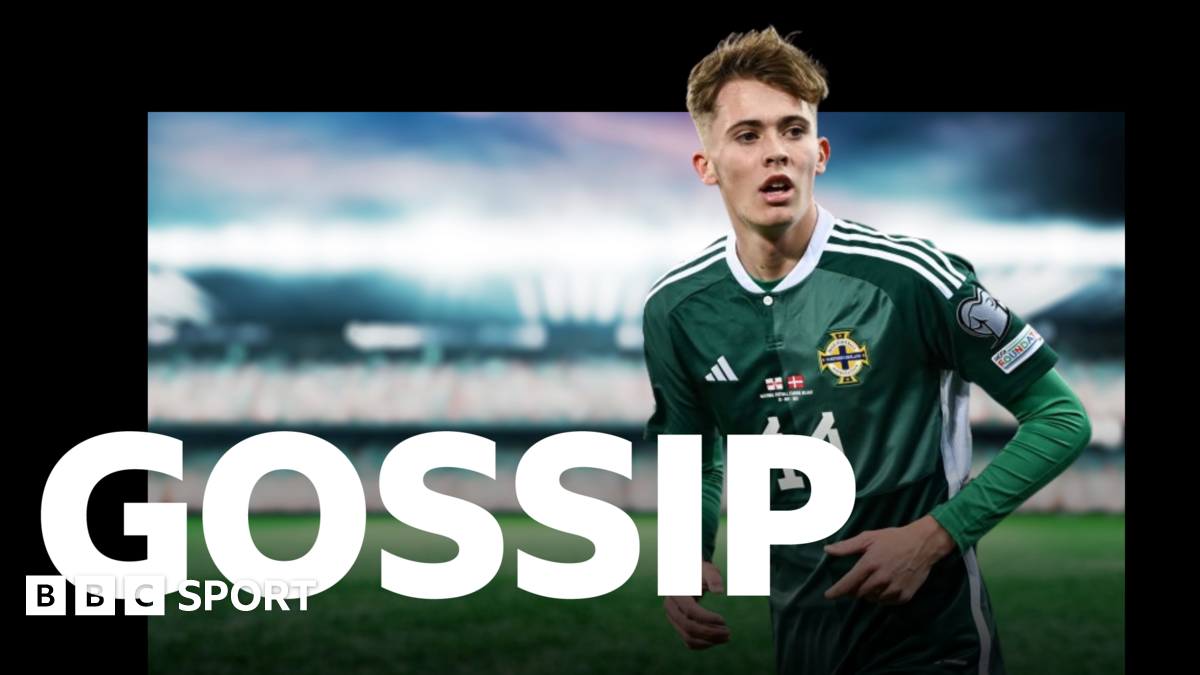Football
‘It’s a dagger to my heart’: Why the message around LGBT in football needs to change

This year’s campaign was already overshadowed by a series of incidents in England which did succeed in highlighting the attitudes which continue to prevail among a sizeable number of fans.
First Ipswich captain Sam Morsy refused to wear the rainbow armband, the Egyptian stating that to do so was against his religious beliefs. It was then revealed that Manchester United right back and Moroccan internationalist, Noussair Mazraoui, refused to wear a club tracksuit top with a pride symbol on it. In response his team-mates all agreed not to wear one either, so he wasn’t ‘singled out’.
England internationalist Marc Guehi, wore his rainbow armband but opted to scrawl ‘Jesus Loves You’ across it. The Crystal Palace captain has since claimed it was a message of inclusivity.
The individual cases have highlighted contradictions. Morsy’s religious beliefs do not prohibit him from running out with a betting sponsor and endorsement of gambling emblazoned across it. For some who share Mazraoui’s beliefs, wearing a red devil on their shirts would be deemed offensive. So where does the line get drawn?
Within days, the issue of how football views LGBT people was again brought into focus with the award of the 2030 World Cup to Saudi Arabia. Following on from Russia 2018 and Qatar 2022, in countries with little tolerance of homosexuality, the question was raised: for all the displays of ‘solidarity’, just how inclusive is the modern game?

For Zander Murray, who became Scotland’s only openly gay men’s footballer in 2022, this year’s conversations show exactly why the messaging around the campaign needs to change.
Patrick Ba-Tin, who works closely with Rangers as part of the Ibrox Pride supporter’s group, is another voice among many who argue that the time has come to turn to a strong anti-homophobia message and that Rainbow Laces in its current form is failing to cut through.
Mr Murray said: “Every time Rainbow Laces comes round it hurts my soul. The abuse is getting worse and worse and worse because I have been there. I know how difficult it is to come out and when you see all the negative press, it’s a dagger to my heart.
“You look at the stats, there’s 133,000 who play professionally in the men’s game. When I was playing, I was part of five people who were out. Five out of 133,000 in the world. If you look at the stats there should be about 9,000 who are part of the LGBT community in the men’s game. I’m seeing it from a different lens, that people haven’t often seen.
“I need to accept who I am and I’ll be in this space until the day I die, I’m the first openly gay Scottish footballer, I’ll always have that tag so I understand it. I will commit to it, if I help one wee kid struggling then that will mean the world. I’ll take all the daggers in my back, I genuinely will.
“Rainbow Laces, up in Scotland, isn’t huge. Not every club take it on board. They lean on it a wee bit but there’s not a huge uptake. I want to talk to the SPFL about options, the Premier League are keen for me to go down but for me Rainbow Laces should change for the men’s game. Strip it back, change the name, it needs to be a strong anti-homophobia message aligned with LGBT fan groups.
“It can’t be forced. It’s difficult for main bodies like the FA or SFA to do stuff that doesn’t feel forced.
READ MORE
“We don’t need a sea of rainbows, we need real meaningful work. I do it 365 days a year, it’s not just one weekend. We maybe raise more awareness in this weekend but there should be a long-term approach and there’s never been one, especially in Scotland.”
As Murray explained, calling for solidarity from those with entrenched views will no work. Ground work has to be done to change those views in the first place.
“Placards in people’s faces and saying ‘support us, support us, support us’ won’t work, we need to make people understand the why and this is why we need to influence the decision makers. We only go about that by trying to win over hearts and minds.
“Doing these workshops and when you’re sitting with boys and men who have probably been a bit homophobic and you’re making them double think and think ‘f***, I’ve said this type of stuff’, the education can’t be about how ‘L means lesbian, G means…’ it’s about living shared experiences, whether they are mine or someone else’s.
“What’s helping me is I’ve been a player. I’ve been in the pro game, I’ve been in the academy, I’ve been in their shoes, it’s connecting because I can directly relate to them.”
Murray has worked alongside football clubs to deliver workshops and educate players, staff and fans on LGBT issues and what is needed. He’s had his own documentary about playing football while coming out and helped with Rylan Clark’s TNT documentary on being gay in football.
While Mr Ba-Tin’s experiences are those of a supporter in the stands, he feels the same way.

“It’s concerning,” he said. “The problem is it’s not really changed for 11 years and they focus too much on the rainbow and don’t really define what that means. If they changed it to anti-homophobia in the way Kick It Out make it pretty clear that their aim is anti-racism it could make an impact. It’s then not necessarily being pro-rainbow but anti-homophobia, it’s a slight but important difference.
“You can see it in wider society that these things come in waves. You get five or so years of it getting better and then a few years of it getting worse. We’re kind of in a dip right now.”
Despite the online rhetoric, Mr Ba-Tin feels its much safer going to games now. The fan experience still has its moments, but he believes the abuse comes from a place of ignorance, not knowing what words mean, more than active homophobia.
Ibrox Pride hosted a watch party at Edmiston House for the Premier Sports Cup Final. The venue at Ibrox was selected because the group are confident it is a safe space for them to support their football team.
He explained: “Maybe 10 years ago, when I first went to games, you heard a lot but it’s really been clamped down on quite a lot. I don’t personally feel unsafe.
“Last year I was in the Broomloan for a game and I heard someone call the ref a homophobic slur and then one of these guys behind me told him he can’t say it, which was surprising because I had looked at him and thought I would have crossed the street to avoid him.
“You still hear older guys calling a player a fairy. Obviously it would be good to be hardline, but five years ago it would have been f****t or straight up gay. Progress is something. With f** you know obviously it is bad, whereas fairy it probably doesn’t click to him that he means gay fans of football.
“I’ve learned that a lot of these people are just anonymous hiding behind social media. People that go to the stadium are so focused on the football, they don’t really care about anything else.
“The whole point for me is to make a safe environment to come watch Rangers and get over this perception that Ibrox is like a death trap, because it’s not, it’s absolutely fine.”









